If you think piracy was a thing of the past, think again. The movies portray pirates with romance and intrigue, but the real thing isn’t that pretty. Today, ships are boarded by pirates wielding automatic weapons and Rocket Propelled Grenades. Often in the attempt to take the ships, bullets fly. If your ship is taken by pirates, you can expect a minimum of six weeks waiting for the ransom to be paid. So far, inevitably a ransom will be paid – that is how it works and that is why piracy is a profitable business.

All that’s required for successful pirates is a relatively lawless nation to use as a base, a nearby trade route, and access to fast boats and automatic weapons. In the past decade, the most dangerous spot was in the Straights of Malaka between Indonesia and Malaysia/Singapore. Currently, the biggest area of threat for piracy is in the Gulf of Aden between Yemen and Somalia, which is where we are right now.
To combat a piracy attack, this ship goes fast – 26 knots. At this speed, the risks are very low – the pirate boats simply cannot catch us. Unfortunately, there are many ships travelling in the Gulf of Aden and northwestern Indian Ocean, and most are not as fast as we are. This area contains major trade routes between Asia and Europe, as well the routes travelled by most of the oil from the Middle East.
On the last voyage across the Gulf of Aden, a small bulk carrier only 16 Nautical Miles from the Hanjin Brussels was hijacked. It was part of a convoy with a military escort, the only option for the slower bulk carriers and tankers who do not have the option to outrun the pirates. At the time of the attack, the officers on the bridge of Hanjin Brussels heard the VHF calls for helicopters, and the final announcement that “pirates have successfully boarded the ship”. The entire altercation lasted only 20 minutes. It was a sophisticated attack, with multiple boats threatening several ships within convoy simultaneously – which allowed the pirates to draw the military away from their actual target. Once the pirates are on board, there isn’t much the military can do. The pirates have the crew as hostages and the ship as well. Even the smallest ship is worth millions of dollars, not even counting the cost of the cargo.
The military escorts are limited by the Rules of Engagement for vessels in international waters, which do not allow a vessel to fire until a clear threat has been identified. Fast vessels coming close to a convoy of slow freighters don’t count. Fortunately, no crew members have been killed in the pirate attacks so far in this area.
About 12 hours after we left the international convoy area, another ship was hijacked. We have no further information beyond the location, but it was right along our path, and just outside the staging area for the convoys. Unfortunately, the pirates have Internet access and VHF Radios, so they can get all the same information that the ships do about the “escort zone” locations.
While listening to a security announcement from one of the warships we suddenly heard “Whiskey Whiskey Whiskey”! We thought “what’s this about alcohol all of a sudden?”. We quickly realized that he was explaining how to get further information, and listed a website. In the international radiotelephony spelling alphabet, W is Whiskey. Thus “The website address is Whiskey Whiskey Whiskey…”. If you’re interested, the website is www.icc-ccs.org, which we haven’t been able to check, since there’s no web access on the ship.
In the end, we successfully traversed the Gulf of Aden with no incidents. The next we learned that a ship 12-hours behind us was hijacked. We don’t have any more information on that vessel, so we can’t say how fast she was going or whether or not she was escorted.
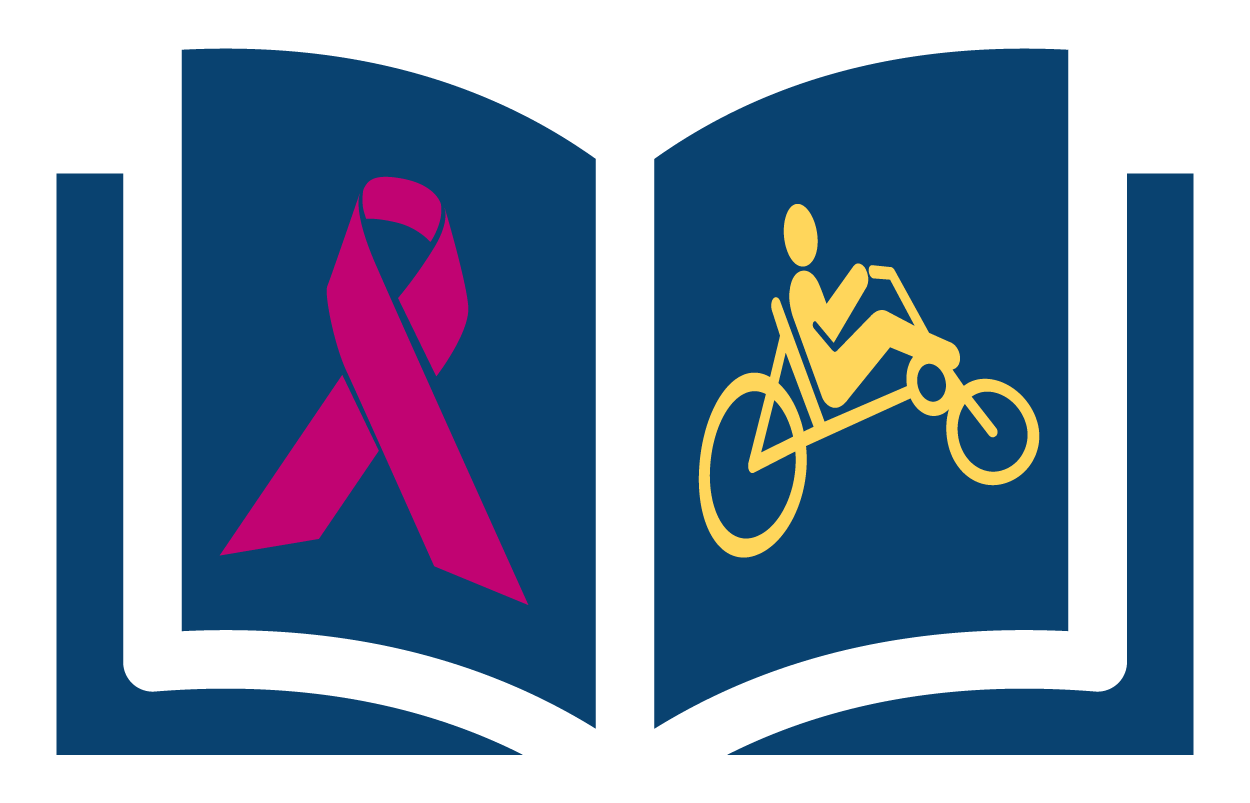
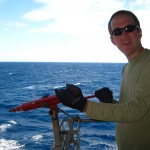
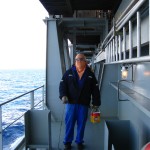
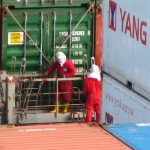
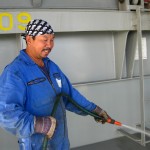
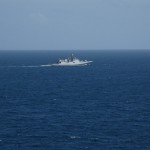
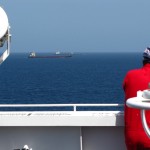
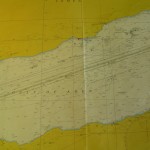
Leave a Reply